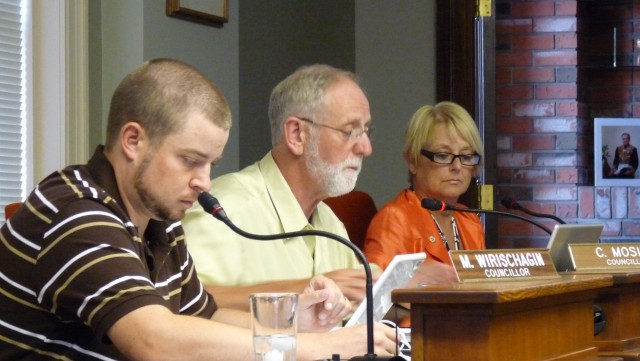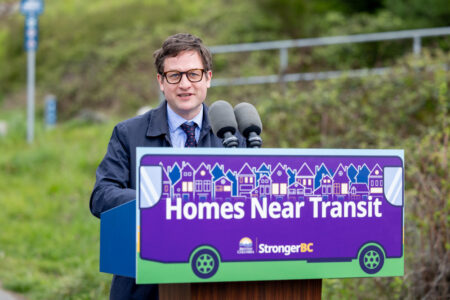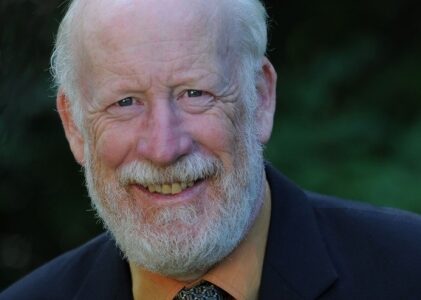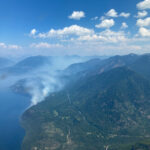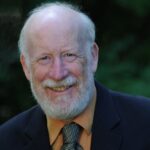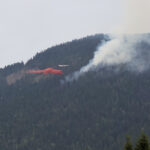SUMMING IT UP: Grand Forks City Council
Grand Forks City Council worked their way through a full agenda at their last meeting including a presentation from the Granby Wilderness Society, a proposal for an environmental committee, air quality, installation of solar heating, and the final reading of the wood burning bylaw. Wildlife tree stewardship agreement Jenny Coleshill, co-ordinator for the Granby Wilderness Society, presented a proposal to the city to adopt a stewardship agreement to help protect wildlife trees and other critical habitat features for wildlife. Coleshill outlined the variety of species of birds that depend on specific types of habitat which has been threatened within the city, in particular the Louis woodpecker that is considered a species at risk. She went on to explain that there has been a great number of wildlife trees already lost to urbanization and suggested that the city should be proactive and build a reputation as an environmentally- aware community. “Cutting down trees can create other problems too, like helping other smaller balsams grow up and creating bank erosion in these areas too,” explained Coleshill. “When you take away trees that help hold in all the soil on the banks so erosion can be greater once the bank side is changed then downstream is all changed, it really has a big effect on the downstream areas. You can take away the hazard of a tree but leaving it for the habitat.” Wildlife tree stewardship is an environmental program that identifies and protects significant wildlife trees and their associated habitats. Often volunteer tree stewards collect nest and tree information, keeping track of the locations of important trees. By having a program like this in place the city works staff could use the information collected for planning. Council received the presentation. Environmental committee proposal Councillor Chris Moslin introduced a proposal for feedback to create an environmental committee. His proposed committee would allow council to disband two other committees and roll their mandates into the one committee – the deer committee and the air quality committee. Moslin suggested that the committee could also monitor city water issues, advise on the carbon neutrality plan and also include advice on the waste and recycling programs in addition to the urban wildlife and air quality. Moslin described the evolution of the air quality committee and how its multi-stakeholder group has managed to work collaboratively towards their goals over the past five years. His idea is to develop a working committee, chaired by a city councillor, involving representatives from the community to assist in tackling the objectives of the committee. Moslin suggested that the city should allocate $10,000 in their upcoming budget to support the work of this committee. “The unfortunate thing for this community is that is not the only environmental issue we are grappling with. In fact the city seems to be grappling with many environmental issues,” said Moslin. “This committee will basically begin to take on the role of the air quality committee, deer committee as well as tackle a couple of other issues that are pressing upon us.” Councillors Joy Davies, Christine Thompson, and Cher Wyers supported the proposed committee and Moslin’s goals. However, Councillor Gene Robert suggested that the committee has too broad a focus and will be bogged down in the multitude of issues before them. “I have some concerns. The carbon neutrality is the area where I would really like to see this committee focus because there is so very little information out,” Robert described. “We signed the charter, we’re supposed to be carbon neutral by 2012, and we’re nowhere near it. So I think this will become the task of this committee.” Robert raised issue with the committee working on issues like water conservation, and air quality because council already has adopted plans which outline their work. Likewise, Robert felt that urban wildlife was not a topic for the city to deal with, and that recycling is the mandate of the regional district not the city. “I like the concept, I think it’s a great idea, it’s what we need. But I think the focus should be on climate change and it should be on carbon neutrality,” said Robert. Council took no further action at this time. Other items At the regular council meeting on July 19, Thompson had given a notice of motion to bring forward a resolution to install a railing on the north side of the stairs to the entrance at the city hall on 4 Street. The report presented to the council from city staff indicated that the issue was a safety concern and staff will complete the installation within 30 days. The total cost should be about $500. Staff reported that no motion was required. Thompson also reported back to council on the status of the museum archives. The Boundary Museum Society hired a consultant to advise on the best location for the archives to be stored as they are currently housed at the Grand Forks Art Gallery. The consultant recommended that the archives continue to be stored in the vault at the Gallery, provided they can have office space for maintenance and management of the archives. Thompson explained that the Gallery is not willing to provide the additional space, and so the Museum is working to facilitate the consultant’s second recommendation to move the archives to the Fructova museum location. Thompson suggested that representatives from the various organizations involved will review the report and discuss options together. Moslin reported that the air dispersion modeling study is now complete and will be provided to the Boundary air quality committee for review at their next meeting on Sept. 16 at 11:00 a.m. in the Regional District meeting room. Moslin indicated that the report will have multiple impacts on the community. A copy can be viewed on the committee’s website. http://www.city.grandforks.bc.ca/air/ Council passed a motion to install solar water heating in the campground washrooms in City Park. Based on council’s decision to start retrofitting city owned buildings with solar power, the first to be done will be these washrooms. “The aquatic centre has seen over 33 percent reductions in natural gas costs,” said Davies. “Although we can’t give an exact figure of how much money we will save, I think by looking at the aquatic centre you’ll see the tremendous savings and payback as a good indication of how that will affect our costs for heating the washrooms in the campground.” Follow up from the issue brought to council about oil recycling in the community has resulted in Mayor Brian Taylor working with the B.C. Used Oil Management Association (BCUMA) to discuss option in collaboration with the Regional District of Kootenay Boundary. The BCUMA has agreed to meet with the city to look at how they might improve services in the area. Council agreed to write a letter inviting the BCUMA to improve services. Council agreed to write a letter to the Premier of B.C. supporting an increase in the minimum wage to $10.00 per hour. It has been more than eight years since the last increase to the minimum wage, and B.C. has now got the lowest in Canada. The final reading of the wood burning appliance bylaw was passed without discussion. Robert registered his vote of opposition. The bylaw states that “no person shall create a nuisance using a wood burning appliance in such a way as to disturb the health and comfort of two or more persons from separate dwellings.” Enforcement would be complaint driven and fines could be up to $500.


